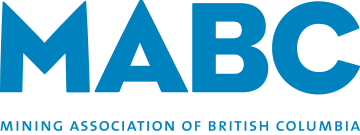The Mining Association of BC (MABC) commends government’s commitment to reduce the PST on electricity by 50% in Fall 2017 and fully eliminate by April 2019, as confirmed in today’s 2017/18 Budget Update. Electricity represents a significant input cost for the operation of mines in B.C., and at most sites, it is the second largest expense.
“Reducing the PST on electricity by 50% in Fall 2017 and committing to the full elimination of the tax by April 2019 is a positive first step toward improving B.C.’s global competitiveness, which in turn attracts investment and sustains and creates jobs in communities across B.C.,” said Bryan Cox, President and CEO of MABC. “We look forward to working with government to continue efforts to improve industry competitiveness to build strong communities across the province.”
Government made several other relevant announcements to the mining sector, including: an increase to the corporate tax rate from 11% to 12%; the introduction of an Innovation Commissioner; the introduction of an Emerging Economy Task Force; and an increase to the Carbon Tax from $30/tonne to $35/tonne.
B.C.’s mining industry plays a critical role in contributing to Canada’s transition to a lower-carbon economy – from the additional copper needed for electric cars compared to conventional cars, to the steelmaking coal required to build public transit infrastructure and wind turbines. A strong and thriving B.C. mining industry can continue to play a pivotal leadership role in Canada’s lower-carbon future, but only if the competitiveness of the industry in British Columbia is fully addressed.
“We look forward to working with the government to ensure the competitiveness of B.C’s trade exposed industries, like mining,” continued Cox. “By taking action to enhance the competitiveness of the mining industry, the government can support this foundational industry that contributes almost $9 Billion to the provincial economy and thousands of family-supporting jobs in every region of the province, all while reducing emissions and meeting climate change targets.”
-30-
For more information:
Bryan Cox, President and CEO
604 681-4321, Ext. 120
BACKGROUNDER – CARBON PRICING
Mines and smelters in British Columbia sell their products in world markets, at globally established prices. This market design makes mining and smelting operations unable to pass on additional costs to their customers. Importantly, British Columbia mining companies are among the lowest GHG emission-intensity miners in the world, in large part due to the innovation in our sector and extensive use of clean energy sources.
While BC’s carbon tax provides a price signal that incentivizes GHG emissions reductions, it also increases the cost of production. British Columbia’s global mining competitors do not pay a comparably stringent carbon price, if any carbon price at all. As an industry unable to pass on incremental costs and one that already operates with low-emissions, the additional cost of the carbon tax – which none of our major competitors incur – is eroding the competitiveness of B.C. industry. This consequently results in investment and carbon leakage – where reduced production in BC simply shifts to higher emitting jurisdictions who don’t face comparable carbon cost pressures.
Well-designed carbon pricing policies result in cost-effective GHG emissions reductions while protecting against investment and carbon leakage. To maintain economic competitiveness in the mining and broader natural resource sectors, a mechanism that balances incentivizing emissions reductions, while working to maintain the competitiveness of trade exposed industries in British Columbia must be introduced. It is important that the mechanism be based on the following principles: a recognition of the differences in global carbon pricing stringency; transparency; consistency; flexibility; incentives to reduce emissions; empirical validation; and simplicity of administration.


